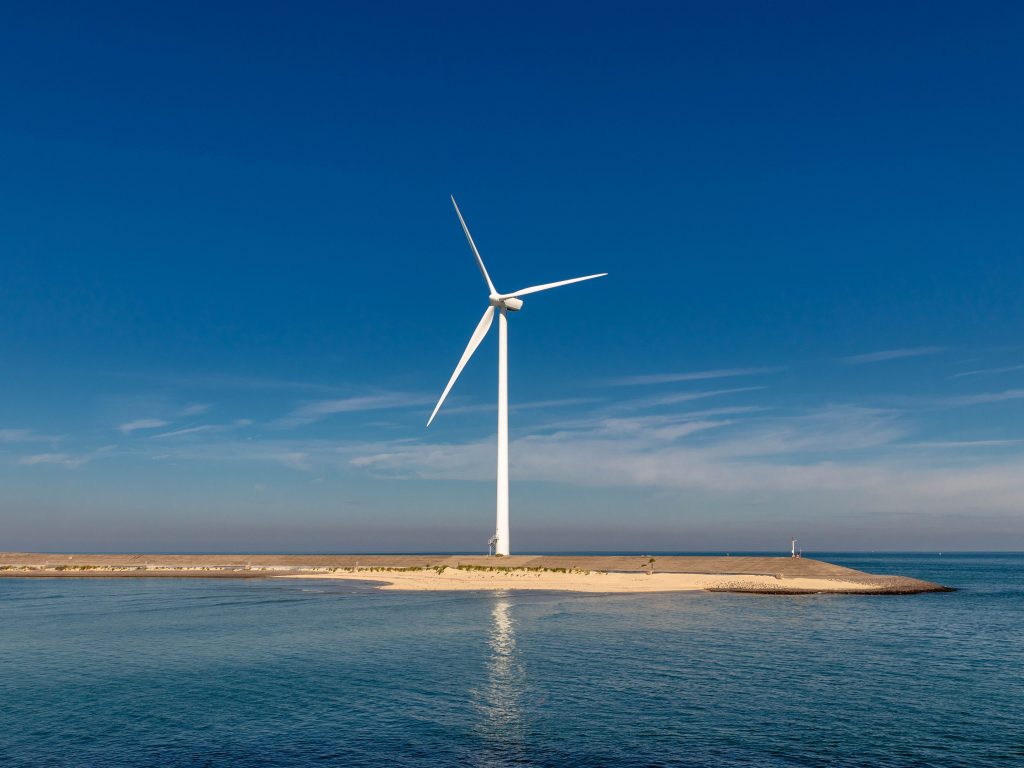- The world has averted a "true apocalypse" from the climate crisis, said writer David Wallace-Wells.
- Renewable energy is now cheaper than fossil fuels and attracting larger investment growth.
- Yet the transition still isn't fast enough, as climate scientists forecast catastrophic warming.
Let's be honest: There's no time like the present to have climate anxiety. Millions of people are sweltering across the Northern Hemisphere as extreme heat hits countries from the UK and Spain to Tunisia and China.
These lethal heat waves and other natural disasters will become more frequent unless countries and corporations shift away from fossil fuels and deploy renewable energy at a rapid clip. That just got harder in the US, where $300 billion in tax credits for solar and wind projects and energy storage stalled in Congress.
But even David Wallace-Wells, a New York Times writer who authored "The Uninhabitable Earth" that warns we aren't nearly alarmed enough about the perils of the climate crisis, can see some bright spots behind the bad headlines.
Wallace-Wells, on a recent episode of "Plain English" with Derek Thompson, discussed how solar and wind power are now cheaper than fossil fuels and how humans have managed to "pull ourselves out of the range of a true apocalypse."
The price of solar and wind power has dropped dramatically in the past decade
Solar power is now the cheapest electricity in history and the majority of the world's population lives where it costs less to produce new power from solar and wind than from dirty energy, Wallace-Wells said, citing the International Energy Agency. That was true even before coal and gas prices soared this year because of inflation and Russia's invasion of Ukraine.
The IEA in June also reported that investment in clean energy is growing faster than investment in fossil fuels globally. Climate experts anticipate spending on renewables to surpass $1.4 trillion this year, accounting for nearly 75% of the overall growth. That is still well short of what's needed to keep global warming below catastrophic levels, the report said, but it's a sign spending is headed in the right direction.
Another caveat is that most of that investment is in wealthy economies, with some exceptions such as solar in India. Clean-energy spending in the developing word is still stuck at 2015 levels.
Still, the price drop has created "a whole new paradigm" because it means the poorest countries can at least plan for a renewable future, Wallace-Wells said.
The scariest warming predictions have been scaled back
Some of the most extreme warming scenarios that scientists warned about as recently as a few years ago now seem implausible, Wallace-Wells said. Some earlier research had forecast that the planet could warm by up to 5 degrees Celsius above pre-industrial levels under a business-as-usual future.
That has been revised down to nearly 3 degrees by the end of the century — a threshold climate scientists still warn is catastrophic. Coral reefs — which millions of people rely on for food, jobs, and flood protection — would die, for example, and natural disasters that historically struck once a century would hit annually.
"What that means is that we have pulled ourselves out of the range of true apocalypse and we are now staring at a future in which we are going to be dealing with huge climate challenges and suffering, but in which a lot remains up to us to determine how we navigate that landscape," Wallace-Wells said.
"The climate impacts are only half the story, and the human response is the other one," he added. "We're not engineering a great human response right now, but at least it's possible."
The US has slashed emissions by more than 17% without major climate policies
A shift away from coal and its replacement with natural gas, which produces half as much carbon dioxide as coal when burned, largely drove the trend.
Now the challenge is deploying more renewable energy, which only generates 20% of US power, in part because wind and solar require a lot of land. Wallace-Wells said local communities that don't want these kinds of projects in their backyards are still resisting the change.
